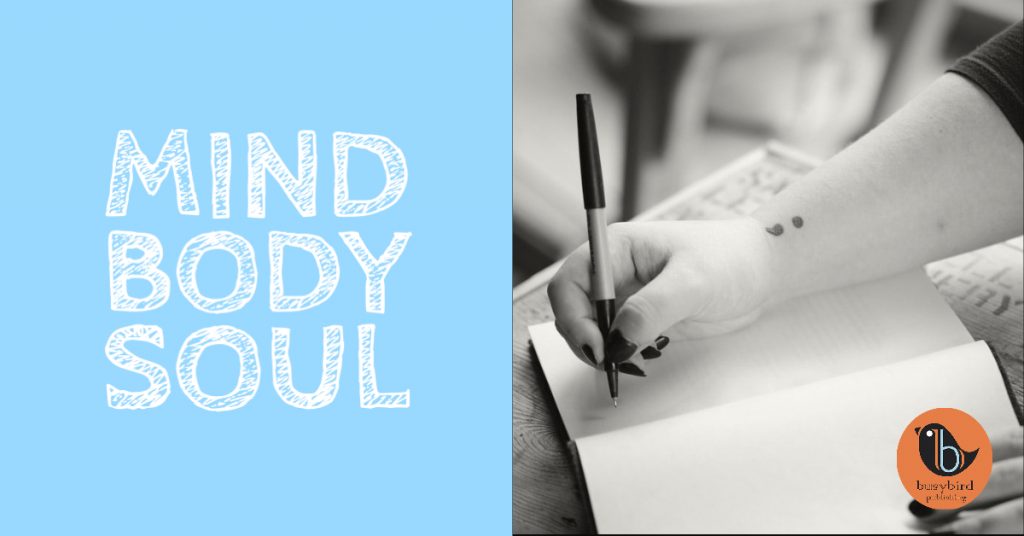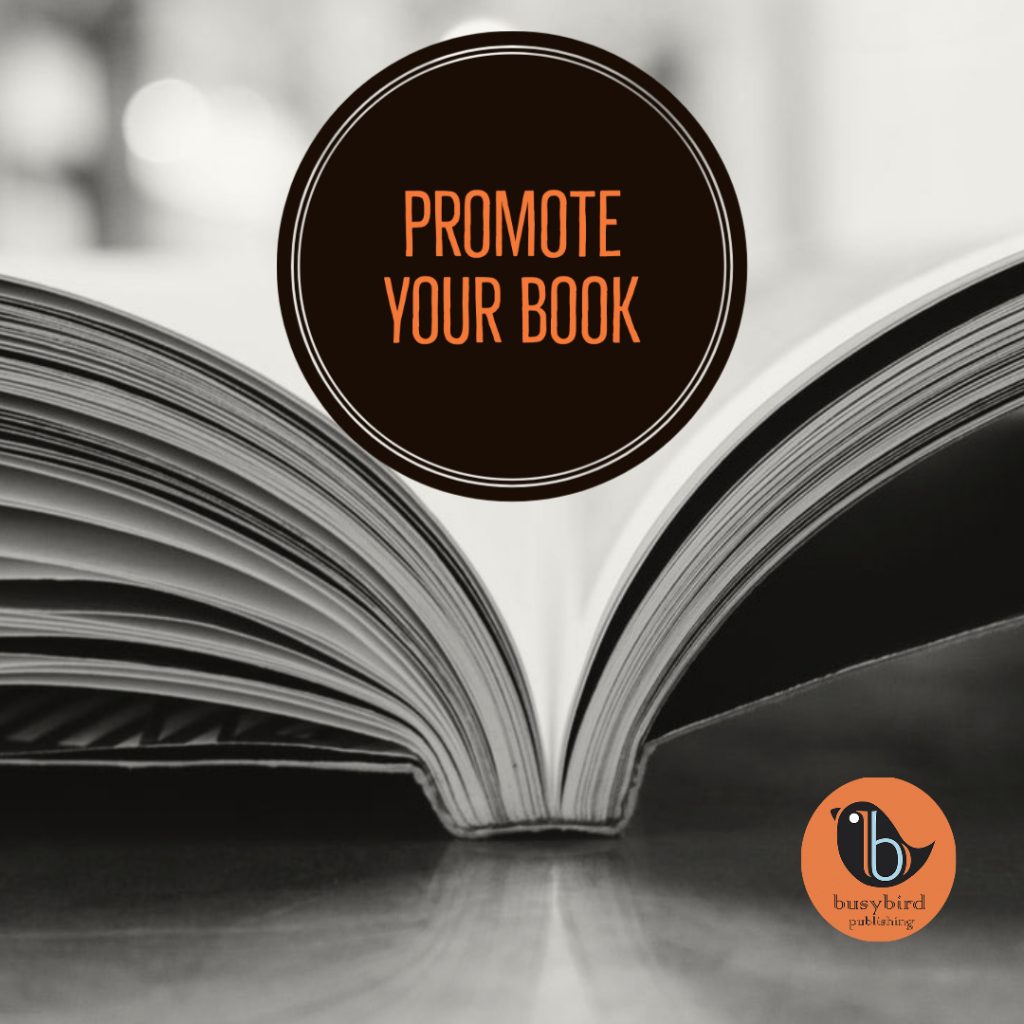

Blog
Welcome to the Busybird blog, where you can find helpful articles, updates, industry news and more. Make sure you stay up to date by signing up to our newsletter below.
The Rise of Audiobooks
May 4, 2021
Is listening to a book the same as reading it?
No, not quite.
Does it mean it hasn’t really been ‘read’?
No, I wouldn’t say that either.
I am one of 55 million who reportedly consume at least one audiobook a year. In fact, I listened to six. It’s an industry that, like it’s podcasting counterpart, has boomed in recent years, and rather more so since the global pandemic that kept a lot of us inside our homes for a large part of 2020.
Despite the growth of the industry and its rising popularity, enjoying audiobooks can be a polarising concept. The ‘great reading debate’, which discusses the legitimacy of consuming books in this format, argues that the two are not the same, often accompanied with disdain for the audio counterpart. This attitude is demonstrated mostly by ‘traditional’ print-copy readers, often the same individuals who take umbrage with the steady rise of the e-book and wish to preserve the original art of reading and storytelling.
If you really consider human history, the audiobook may be the closest to replicating the earliest forms of storytelling and have a rightful place in the book publishing market. Visual and oral storytelling were our first forms of communication, and tales of life, hunting and rituals were our first ‘stories’ back before 30,000 BC. It is hard to deliberate on the first ‘printed’ form of stories. When does a symbol more closely represent a written word than an image? The Egyptian hieroglyphs come to mind here. The distinction between depictions of stories in a physical form makes it hard to determine when the first story was written. What can be sure though, is that audio consumption is by no means a new concept in the experience of stories.
I get it, though. Listening to an audiobook is not for everyone. I had a great deal of trouble incorporating audiobooks to my metaphorical bookshelf. It’s not easy to hear the narration of a novel if you’re so used to your own internal vocalisation of text in your head. That, and the absence of a physical copy to hold and turn each page are not easy things to forget.
So what are the favourable factors then?
Today you would be hard-pressed to find a novel that doesn’t have an audiobook version, and for good reason. Audiobook production has seen a similar boom as e-books, increasingly expanding as we head in a more digitally orientated direction. Similarly, the extent of podcasts has been an encouraging factor for the audiobook industry as the popularity of the format increases.
There are many benefits to an audiobook that account for this emerging popularity. For one, the hands-free practicality of audio narration sings to my multi-tasking sensibility and I’m sure of that in others too. Stephen Fry has followed me around the house performing menial tasks such as the hanging up of laundry and dish washing, as well as down the street to the shops, and even – after a particularly engrossing cliff-hanger – accompanied me on a morning run when I just couldn’t put him down.
There have been times that my experience of a book has been greatly added to by narration and – dare I say it – even better than reading it in a physical form. The recognition of the popularity of this format has given way to the emergence of truly captivating voice actors to adapt to the platform. I grew up with the Harry Potter audiobooks on repeat so it’s no wonder that to this day Stephen Fry comes top of my list here. Additionally, collaborations between narrators to perform with a full cast of voices is not unheard of in ‘ensemble’ novels these days. Daisy Jones and the Six by Taylor Jenkins Reid is an example of this, boasting the talents of Benjamin Bratt and Judy Greer among a well-rounded cast to bring an added element of personalisation to Reid’s characters.
You don’t have to take my word for it though, there are awards for this line of work. It’s called the Audie Awards and it is well worth checking out for some excellent recommendations from the past year if you wanted a guaranteed good place to start.
If memoirs or biographies are your thing then I can’t recommend considering the audiobook format more. Non-fiction and autobiographies lend themselves well to this medium. More often than not, the narration is provided by the author in these cases. After all, who better to read A Life on Our Planet by David Attenborough to you than the man himself?
Audiobooks may not appeal to everyone, but they certainly have their place in the publishing industry, and rightfully so. It’s up to the individual to determine how they best and most enjoy consuming literature, whatever form that may take. Perhaps you need to hold a book in your hands and turn the page to really engage with it, perhaps you favour a more portable e-book and the flexibility that it provides. Maybe you have a headphone in your ear and prefer narration. I don’t think one experience is superior to another when it comes to appreciating the work of authors.
Even still, perhaps reading has become a hybrid mix of platforms. My bedside table could vouch for this: a Kindle, a tall stack of novels, and headphones dominating the surface space. I think variety is important and anything that keeps us reading and supporting the work of authors and publishers, well that’s even better.
Emma Fuelling – Publishing Intern
Why Join a Book Club?
March 9, 2021
Not quite the ceremonious circling of people, stereotypically women; tea in hand, books on lap, a patchwork of cardigans encircling their way around the coffee table in hues of reds and whites – although it certainly can be this, who’s to say otherwise – but a wonderful opportunity for different minds to connect together over new and different texts. Book clubs are a fantastic way to not only read books outside of your own choosing, but to experience the book outside of your own reading, interpret things in new ways and learn what parts of the text grabbed some of your peers but not others.
For just over a year I’ve been lucky enough to be a part of an amazing group of young women, strung together from various parts of life (school, university, work, siblings, etc), and brought together through a shared love or shared interest in developing their love of reading. The concept is simple: each of us host a different month of the year and we all read the book of the host’s choosing, coming together on a preselected date to discuss, debate, sometimes even rival over that very book’s content.
With a collection of very different personalities and interests, the books I have read in the last year have been of varying tastes and types, ranging from biographies to prose poems to young adult fiction. However, the best discussions have always come from the books that have sparked the most general dislike over characters, themes or just the general plot.
But why read a book you didn’t enjoy?
Because the promise of discussion can almost always change your opinion. On the way to our last month’s gathering, a group member happily claimed that she always left book club feeling completely different about the book we had just read. While your overall take on the book may remain unchanged, hearing multiple other voices share their reading of a book, which you have all recently completed, provides opportunity to engage in the book in a way that wouldn’t happen if you were reading for private enjoyment.
Reading for book club and reading for self, have become two different practices of reading. There’s the obvious challenge of working towards finishing a book you are uncertain about, but there is also the increased opportunity to broaden the way you think and approach your choice in literature, in the future. We tend to read a lot of contemporary writers in our group and it’s a rewarding way to engage in current book markets and even support local writers and book shops, with the promise of a group of us contributing by purchasing a books.
In fact, this has been a widely discussed topic in our book club, especially as we navigated the year in lockdown. Our approach to book club changed significantly, lockdown laws affecting not only the way that we saw each other, but also the way that we purchased books. With delivery considerably impacted, especially with purchases made from cheaper online bookstores such as Book Depository, we were able to discuss how we can better purchase in the future, moving towards supporting our local stores.
In this sense, there’s more to book clubs than just reading a book each month and popping in somewhere to talk about it. It’s also a safe place to share ideas, developments, even reading material outside of the club’s choosing.
Erin Lyon – publishing intern
Writing to Reconnect
November 16, 2020
A few months ago, while walking a six-kilometre loop with my husband, Kev and Labrador, Oscar, a father and his two sons whizzed past us on their bikes. They were calling directions out to each other – let’s go down this dirt track – and I wondered if this was a usual activity for them or something born out of social isolation and the fact that we are not allowed more than five kilometres from our homes and only for two hours at a time.
As I looked ahead, and behind us, there were many family groups either walking or riding bikes, some little people on scooters. It’s been like this for months, even during the coldest of winter days.
This is a positive outcome of a global pandemic. Families forced together, hopefully reconnecting. I moved to the future for those two young boys and I’m sure they will have good memories about days like this, hanging out with Dad, just like Dad might too. Special memories.
Family ties. This is what we are getting, what we are being reminded of, as we battle against a silent, invisible and so-called deadly enemy.
When the pandemic first became part of our life in March this year, I saw it as an opportunity to work on some writing projects that I had been neglecting. And I did. I proofed and amended my novel, getting it to the stage of review. I printed ten bound copies and started fielding possible readers. I felt accomplished and patted myself on the back.
As time went on and we got deeper into life in ‘isolation’, the anxiety about the future began to creep in. I was declaring, ‘Write your book!’ while in lockdown but for many people stress was overtaking them. It began to happen to me. Our income halved and we wondered what the future held for us. Sleep became restless and I took on the collective anxiety that was being expressed all around me and on social media to the point where I felt exhausted and all creative energy was zapped. I watched more Netflix, ate more food and worried about my family and friends, the whole world even.
My friends declared that all their creative juices had dried up along with loss of income. Some had to home-school their children, something many felt ill-equipped to do. Some had to do this while also working a full-time job at home. I stopped harping on about writing and being creative in lockdown because it felt unhelpful.
I was not writing or reading and nothing excited me. I felt hemmed in and fearful, then angry at the situation. I wondered how people who weren’t resilient were coping. Would they bounce back from this? Stories emerged of young fathers taking their own lives and domestic violence soaring – not everyone was managing to reconnect in a positive way.
My usual sunny disposition was being rained on. I wasn’t so worried about myself. I was worried about ‘the world’. I was worried about all the lonely people who needed company and assurance that everything would be okay. I was worried about the decisions that our leaders were making. Were they the right ones? How much damage was being done unknowingly?
I tried to think about the things that I could do for myself to stay strong because if we don’t look after ourselves, we are no use to anyone.
I tried to think of ways to help others. Not easy when we weren’t allowed to see people or travel further than five kilometres from home. I offered help to anyone local who might need it. This was well-received but no one actually took me up on my offers. I wanted to feel useful.
I was forced to go inward. What could I do to help myself? I looked for books to read that I could escape into and I turned to my trusty journal. I started to vent daily for ten to fifteen minutes each day, a practice of old that I’d long forsaken.
Almost instantly, I could not stop writing. I could not stop the words flowing. You would think, with life so reduced by restrictions that I’d have very little to say but I couldn’t stop. I wrote and wrote and wrote.
I ranted and raged about what was happening in the world, recorded my day and gave gratitude for what I did have – food, shelter, work, a loving family that was safe and well. There was so much to write about for all of them.
With this daily ritual, came a flow of ideas, an opening up. I started working on other projects and sketching on paper, a challenge that I’d set for myself for a visual project. It came to a point where I looked forward to these fifteen minutes every day, my time of solitude where I connected with myself at my teeny little foldout desk looking out across my wild garden with the birds chirping away. I was reconnecting with myself.
Blaise, the book chick
The health benefits of writing
September 10, 2020
This week, I’ve had a few conversations about art and the value of it. For many people it feels indulgent to create art if there is no end goal (i.e. monetary payoff) and then there is the question of how to price something (in this case it was a comparison of three paintings worth thousands of dollars and which was worth more than the other).
This got me thinking about value because one of the biggest barriers to people creating written material is the idea of spending two, five or even ten years on a project that may never get read, let alone published.
I’m all for making money from writing, in fact I make a living from it in various forms (writing, publishing, coaching) but there is a benefit to it that far outweighs the money – the health benefits.
If we think about the three areas of life that are most important to health – mind, body and spirit – writing can improve all three.
Mind
Writing keeps your mind sharp. You know that old saying, use it or lose it? Writing, even if it’s simply to write in your journal, will boost your memory and comprehension and also increase your capacity for working memory. You could equate it to going to the gym for your brain. Aside from better brain function, writing will boost your mood and create better mental health.
Body
You could say that sitting at the desk hunched over computer or notebook is bad for you physically (yes, it is) but writing lowers your stress levels and we all know what stress does to us physically. If you don’t, go do some research. If you can reduce your stress levels, you will improve your immunity to disease.
Soul
It’s very easy to become spiritually bereft if our life is all about working to put food on the table. Writing, or any creative outlet, nourishes our spirit. It’s a form of play that allows us to forget about a stressful life for a while and reconnect with ourselves.
I’m no scientist and I haven’t delved deeply into the facts and figures but this is what I’ve learned from my own writing practice and from talking to countless people about it over many years. For some, writing has saved their life. This is worth much more than any dollar value.
If you spend just ten minutes a day writing in your journal or working on a writing project, you will notice the improvements to your life very quickly. I liken it to a form of meditation, something I do for myself when so much of my time is devoted to other people. If you can steal another ten minutes on top of this, all the better!
I’m always happy to connect with people who would like to delve deeper into their writing practice. You can email me here.
Blaise the book chick
*As an aside, reading is equally beneficial and goes hand-in-hand with writing.
25 free or low cost book marketing ideas
August 27, 2020It’s well known that word of mouth is the best way to sell books. In fact, it’s the best way to sell anything. To create word of mouth, you and your book need to be visible in as many areas as possible. Some do involve you being on camera but there are ways around that if you absolutely can’t do it.

Create a list of the kinds of activities you do feel comfortable with and then make a four-week plan for implementation. Promotion should be a regular activity if you want your book to do well. Remember that you have written a book, this means you have a ton of content right in front of you that you can repurpose in many ways such as extracts, educational snippets, fun facts and teasers.
- Create a website. This is your shopfront and the ONLY place you have control over online.
- Create a YouTube channel to share videos relating to you and your book(s).
- Create a list of popular hashtags that are relevant to your genre for social media.
- Search these hashtags on social media and engage in 10-15 posts.
- Join 2 reader Facebook groups – engage in the group at least once a week.
- Share posts about your book on social media.
- Create a trailer for your book (this doesn’t have to be Hollywood quality).
- Video yourself 9or someone else) reading an excerpt from the book, post it to YouTube and share on social media and your website.
- Create a giveaway and ask people to share on social media in order to go in the draw.
- Send an email to your list sharing any of the above.
- Create a profile on GoodReads.
- Engage in posts on GoodReads to build your community.
- Once your book is published, claim your book on GoodReads as the author.
- Ask people to post reviews for your book on GoodReads.
- Have a one-week promotion of your book at a lower price.
- Create a one-page info sheet to send to media, bookstores, libraries.
- Create some visuals to post on social media that entice people to want to know more about your book.
- Give away 5 copies of your book in exchange for reviews.
- Create printed promotional materials such as bookmarks, flyers, posters or a pull-up banner.
- Start a blog to share your writing process or background information about your book such as characters in fiction or your experience for non-fiction.
- Look for opportunities to be a guest on a podcasting show.
- Team up with other writers to cross promote.
- Contact libraries to offer yourself to do an author talk.
- Contact your local newspaper with a media release for a profile (they love supporting local authors).
- Attend an open mic night or business marketing group to share your book and make connections.
Put aside 1-2 hours per week for a list of activities around promotion so you aren’t overwhelmed.
Each month at Busybird Publishing, we have a one-hour Publish for Profit session where we talk about writing, publishing and promotion of books. Feel free to join this free zoom session on the first of each month 8-9pm (AEST).
We also run a monthly open mic night on the third Wednesday of each month, also run via Zoom (7.30-9pm AEST) while we aren’t allowed to meet in person.
Blaise the book chick
